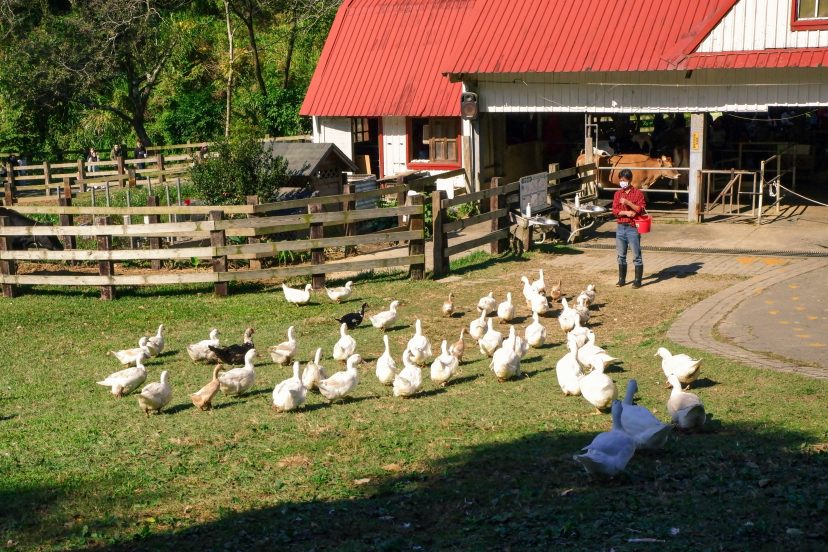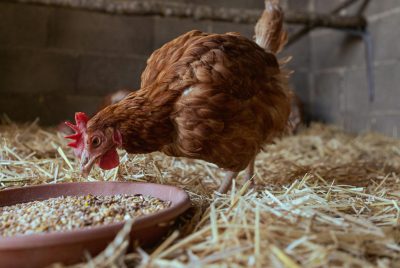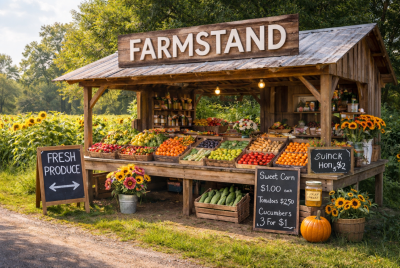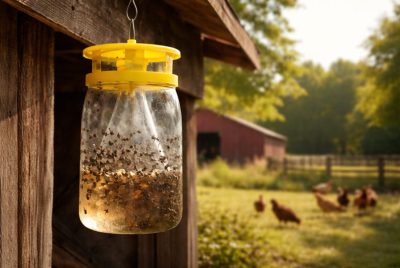Ducks vs Chickens: Which Is Better for Your Homestead Goals?
We may earn a commission for purchases made using our links. Please see our disclosure to learn more.
If you’re starting a homestead, one of the first big questions feels simple but is surprisingly tricky. The debate of ducks vs chickens comes up for almost every beginner. Both can give you fresh eggs, meat, and a lively farmyard. Yet each bird comes with its own quirks, benefits, and challenges. I remember asking myself the same question when I first started, and it honestly felt overwhelming. Choosing the wrong one for your setup can mean constant mud puddles, noisy mornings, or poor egg production. The good news is that by comparing their strengths and weaknesses, you can make the right choice. You may even decide to raise both and enjoy the balance they bring to your homestead.
Ducks on the Homestead
Ducks contribute much to independent life. Once their water needs are met, they are resilient, resourceful, and remarkably low-maintenance. Let’s examine their main advantages.
Hardiness and Disease Resistance
Ducks are a popular choice among homesteaders due to their inherent disease resistance. Ducks are immune to the majority of poultry diseases, unlike chickens, who are susceptible to mites and respiratory issues. They thrive in wet conditions, making them a smart choice for homesteaders living in rainy regions.
Pest Control for Gardens
If you’ve ever battled slugs or snails in your garden, you’ll instantly appreciate ducks. They excel at pest control, hunting down insects and mollusks with enthusiasm. In fact, rice farmers in Asia have used ducks for centuries to control pests without chemicals—a sustainable practice that’s now gaining attention worldwide.

Egg Production and Quality
Duck eggs are larger, richer, and higher in protein than chicken eggs. Their eggs last longer because their shells are stronger and more durable. Bakers love them because their high yolk-to-white ratio makes cakes, breads, and pastries fluffier and more flavorful. While chickens may lay more frequently at first, ducks often lay consistently for a longer span of their lives.
Foraging Habits
Ducks are natural foragers. They love exploring yards, ponds, and gardens for weeds and insects, which can reduce feed costs. If you give them enough space, you’ll notice how much they contribute to maintaining a balanced ecosystem on your land.
Downsides of Raising Ducks
Of course, ducks aren’t perfect. They’re messy around water, splashing and creating mud where they bathe or drink. I quickly learned that unless you plan for water management, your yard can turn swampy fast. They also need access to ponds, kiddie pools, or troughs to stay healthy, which adds to infrastructure needs.
Chickens on the Homestead
Chickens, the traditional face of backyard farming, remain the most popular poultry choice for a reason. They’re versatile, accessible, and easy to fit into small spaces.
Availability and Cost
You can find chickens almost anywhere, from local farm stores to online hatcheries. They’re usually cheaper than ducklings, making them a budget-friendly starting point for beginners.
Space Requirements
If you live in a suburban neighborhood or have limited space, chickens are your best bet. They adapt well to confinement and thrive in compact coops. A chicken tractor—a movable coop—can also let them forage while protecting your garden beds.
Versatility in Use
Chickens provide more than just eggs. They’re also raised for meat, and their scratching habits can be useful for breaking down compost or preparing soil. Some homesteaders even rotate chickens through gardens as a natural tilling system.

Noise Considerations
While hens cluck quietly, roosters are another story. Their crowing can start before dawn and may frustrate neighbors. If you’re in a community with close housing, you’ll need to decide whether roosters are worth the hassle—or stick with hens only.
Egg Production and Environment Needs
Chickens are steady layers, especially in their first few years. However, their laying period often tapers off sooner than ducks’. They also dislike damp environments, so if you’re in a wet climate, you’ll need to invest in drier housing and stricter coop maintenance.
Ducks vs Chickens: A Side-by-Side Comparison
When deciding on raising ducks vs chickens, it helps to look at how they compare on key homestead goals:
- Eggs: Ducks lay larger, nutrient-dense eggs. Chickens produce more initially but may slow down faster.
- Care Needs: Ducks thrive in wet conditions but create water mess. Chickens prefer dry climates and are easier to confine.
- Cost: Chickens are cheaper and easier to source. Ducks often cost more upfront.
- Noise: Ducks quack softly; roosters can wake the whole neighborhood.
- Sustainability: Ducks help with pest control and soil fertility; chickens assist with composting and soil aeration.
Recommended Supplies for Raising Poultry
No matter which bird you choose, the right tools make care easier and more enjoyable. Here are five highly rated Amazon products to consider:
- PawHut Wooden Chicken Coop with Outdoor Run – Spacious, secure, and designed to protect your flock from predators.
- Harris Farms Heated Poultry Drinker Base – Prevents water from freezing with a thermostatically controlled heater—great for cold climates.
- RentACoop Flock Feeder (Weather‑Proof, Multi‑Port) – A large-capacity feeder with six ports and rain hoods that reduce feed waste.
- Omlet Automatic Chicken Coop Door Opener – A weather-resistant, battery-powered device that opens and closes your coop door on schedule to keep chickens safe.
- K&H Thermo-Poultry Brooder – Safe, consistent heating for ducklings and chicks.
Pairing the right products with your flock ensures you save time, reduce mess, and keep your birds healthy. For more essentials, check out this detailed guide on homesteading supplies.
What Research Says About Ducks and Chickens
Scientific studies highlight the unique strengths of both birds. A peer-reviewed review on rice–duck cultivation that reduces pests and agrochemical inputs reports that ducks suppress key rice pests and weeds while lowering fertilizer and pesticide use—evidence of natural pest management with real ecological benefits. Meanwhile, a Poultry Science review on laying-hen productivity and selective breeding documents how decades of genetic selection have extended laying persistency (approaching ~500 eggs over ~100 weeks), illustrating major gains in efficiency. Together, this research underscores that ducks align with eco-friendly farming goals, while chickens excel at consistent food production—two pillars of a balanced homestead.
Why Many Homesteaders Choose to Raise Both
Here’s a little secret: you don’t actually have to pick one. Many homesteaders raise both ducks and chickens because they complement each other beautifully. Ducks handle wetter areas and keep pests under control, while chickens thrive in drier spaces and contribute to composting and soil preparation. On my own small setup, I’ve noticed how the two balance each other out—ducks take care of slugs in the garden, while chickens help turn compost piles. By raising both, you spread out risks, diversify your egg basket, and maximize the resilience of your homestead.
Conclusion
So, when it comes to ducks vs chickens, there isn’t a one-size-fits-all winner. Ducks shine in pest control, hardiness, and rich egg production. Chickens, on the other hand, are budget-friendly, versatile, and adaptable to smaller homesteads. The right choice depends on your climate, available space, and long-term goals. And for many homesteaders, the smartest solution is to keep both—building a diverse flock that offers the best of both worlds.
FAQs
Is having ducks better than chickens?
Ducks are better for pest control and long-term egg production, while chickens suit smaller spaces and lower budgets.
What is better, duck or chicken?
It depends on your needs. Ducks thrive in wet climates, while chickens excel in dry conditions and are easier for beginners.
What benefits can duck farming have to offer?
Duck farming reduces pests, provides nutrient-rich eggs, and requires less medical intervention due to their hardiness.
What role do ducks play in sustainable farming?
They fertilize soil naturally, eat harmful insects, and reduce reliance on pesticides.
Is duck more sustainable than chicken?
In wet climates, yes. Ducks integrate seamlessly with natural ecosystems. In dry climates, chickens are more sustainable.




